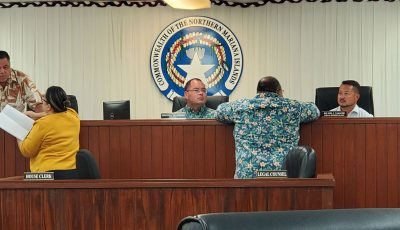Kilili to DHS: Increase CW caps
WASHINGTON, D.C.—Delegate Gregorio Kilili C. Sablan (Ind-MP) is asking Homeland Security Secretary Kirstjen Nielsen to put CW caps back at the 13,000 level to avoid disruption of the Marianas economy and the loss of U.S. jobs.
In a letter to Nielsen this week, Sablan called for a cap of 12,997 for fiscal year 2018 and 12,996 for fiscal year 2019, the same “cut by one” the delegate has previously urged.
Homeland Security has announced limits of 9,998 and 4,999 for those two years, but also left open the possibility of change.
The department made the sharp cuts, it said, because the Commonwealth-only transitional worker program is scheduled to end at the end of 2019.
“I let the Secretary know that Republicans and Democrats in the House and the Senate are already working together on legislation to go beyond 2019,” Sablan said.
“Our goals are to ensure that more and more local workers in the Marianas get jobs, but that foreign workers are still available to fill in the gaps.”
Sablan thinks it will be possible to negotiate a bill that has the bicameral and bipartisan support necessary for passage.
“I am working with the same group that got Public Law 115-53 enacted last year,” he said.
That Sablan legislation increased training funds for local workers, barred the use of CW permits for new construction workers, and—for the first time ever—increased the number of CW permits.
“In fact, we started discussions of this longer-term policy even before last year’s bill was signed into law.
“So, people are up to speed on the Marianas issues,” Sablan said. “And we have built the kind of familiarity and trust that helps any tough negotiation.”
In December 2014, Sablan also succeeded at getting the transition program extended for five years, from 2014 to 2019, with Public Law 113-235.
“We have been down this road before,” said Sablan. “But it would be foolish to predict success in Congress. There are 541 members of Congress, and anyone who really wanted to could block a bill.
“But we got the transition program extended before. We got Public Law 115-53 enacted last August.
“I think that experience makes success more possible.” (PR)



























